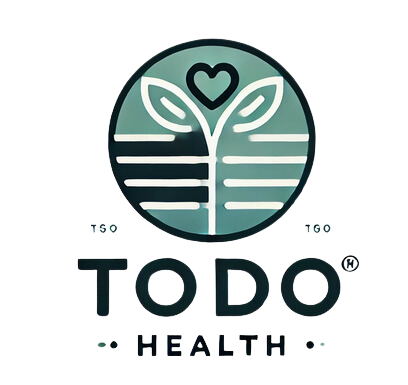You set a regular bedtime, avoid caffeine in the evening, and make sure you get your full eight hours. But when the alarm rings in the morning, you still feel exhausted. You drag through the day, rely on caffeine to stay alert, and wonder what’s going wrong. If you’re constantly tired despite getting “enough” sleep, you’re not alone.
For many people in the USA and UK, persistent fatigue is a quiet epidemic. The frustrating part is, it’s not always about how long you sleep—it’s about how well you sleep, and what’s happening in your body during those hours. If you’re wondering why you feel tired even after sleeping 8 hours, the answer lies deeper than your bedtime.
Let’s break down the most common causes and explore what you can do to finally wake up refreshed.
1. Poor Sleep Quality
Not all sleep is created equal. You may be in bed for eight hours, but if your body isn’t cycling properly through the stages of sleep—especially deep and REM sleep—you’ll wake up feeling unrested. Sleep disruptions caused by stress, noise, room temperature, blue light exposure, or even alcohol can prevent your body from entering restorative sleep phases. Many people experience micro-awakenings without realizing it, disrupting the sleep cycle.
What to do: Focus on improving your sleep quality, not just the quantity. Keep your bedroom dark, cool, and quiet. Avoid screens for at least an hour before bed. Use blackout curtains or an eye mask if needed. Track your sleep with a wearable device or app to check if you’re getting enough deep sleep.
2. Sleep Apnea or Breathing Issues
One of the most underdiagnosed reasons people feel tired after 8 hours of sleep is sleep apnea. It’s a condition where your breathing repeatedly stops and starts during sleep, often without your knowledge. This forces your brain to jolt you awake briefly—even if you’re not conscious of it—leading to fragmented sleep. Obstructive sleep apnea is particularly common in people who snore, are overweight, or have a thick neck or small jaw.
What to do: If you snore loudly, wake up with a dry mouth or headaches, or feel excessively tired during the day, talk to a doctor about a sleep study. Sleep apnea can be treated with lifestyle changes, dental devices, or a CPAP machine.
3. Blood Sugar Imbalances
Your energy levels aren’t just about sleep—they’re also tied to how stable your blood sugar is. If you’re eating a diet high in refined carbs and low in protein or fiber, your blood sugar can spike and crash throughout the day. These crashes often leave you feeling drained, foggy, and sluggish—especially in the mid-morning or after lunch. A blood sugar drop during the night can even cause you to wake up briefly or have disrupted sleep without realizing it.
What to do: Balance every meal with protein, healthy fat, and fiber. Avoid sugary snacks, processed carbs, or skipping meals. A protein-rich breakfast can help stabilize energy throughout the day.
4. Hidden Hormonal Imbalances
Fatigue is one of the most common symptoms of hormonal issues—especially imbalances in thyroid hormones, cortisol, and sex hormones like estrogen and progesterone. Hypothyroidism (low thyroid function) can make you feel tired even after sleeping well. High cortisol from chronic stress can also affect sleep depth and quality. Many women in their 30s and 40s report sleep disturbances and morning fatigue during perimenopause due to changing hormone levels.
What to do: If you’re consistently tired, ask your doctor to check your thyroid function (including TSH, Free T3, and Free T4), as well as cortisol levels. Hormone testing can reveal hidden imbalances that impact energy and sleep quality.
5. Poor Sleep Hygiene Habits
Sometimes, your bedtime routine is the problem. Habits like scrolling on your phone before bed, working late on your laptop, or eating heavy meals too close to bedtime can all disrupt melatonin production and your natural circadian rhythm. Inconsistent sleep and wake times—even on weekends—can throw off your body’s internal clock, leading to a feeling of grogginess even after 8 hours of sleep.
What to do: Set a consistent bedtime and wake time—even on weekends. Avoid screens an hour before bed and create a calming nighttime routine with reading, stretching, or meditation. Keep your bedroom technology-free as much as possible.
6. Deficiencies in Key Nutrients
Even a balanced diet can fall short in certain nutrients critical for energy and restful sleep. Iron, vitamin D, B12, and magnesium are especially important. Low levels of iron or B12 can cause fatigue, brain fog, and poor concentration. Vitamin D plays a role in melatonin regulation and immune function, while magnesium helps relax the nervous system for deeper sleep.
What to do: Ask your doctor for a blood test to check your vitamin and mineral levels, especially if you’re on a restricted diet, vegan, or have heavy periods. Supplement carefully and focus on whole foods like leafy greens, eggs, lean meats, seeds, and fortified cereals.
7. Chronic Stress and Mental Exhaustion
Even if you’re physically resting, mental and emotional stress can wear you down. Chronic stress keeps your nervous system in fight-or-flight mode, which increases cortisol levels and can interfere with both falling asleep and staying asleep. People with high-stress jobs, caregiving responsibilities, or emotional burnout often report being tired despite sleeping 8–9 hours a night. This is because their body never truly feels “safe” enough to rest deeply.
What to do: Incorporate daily stress relief habits like journaling, breathwork, or a short walk outdoors. Try reducing stimulation at night—turn off notifications, dim the lights, and create a sleep-friendly environment. Cognitive rest is just as important as physical rest.
8. Underlying Health Conditions
Sometimes persistent fatigue is a sign of an underlying medical issue. Conditions like anemia, chronic fatigue syndrome, fibromyalgia, autoimmune disorders, and depression can all cause ongoing tiredness despite a full night’s rest. It’s important not to dismiss long-term fatigue as just being “tired” or “lazy”—especially if it interferes with your ability to function during the day.
What to do: If you’ve tried improving your sleep habits and still feel exhausted every day, consult a healthcare provider. A thorough workup may be needed to rule out chronic conditions or develop a tailored recovery plan.
9. Overtraining or Under-Recovering
Ironically, some people who are committed to their health and fitness still feel exhausted—not because they aren’t doing enough, but because they’re doing too much. Excessive cardio, high-intensity workouts, or not taking rest days can lead to physical burnout and adrenal fatigue. Without enough time to recover, your body stays in stress mode, and sleep doesn’t feel restorative.
What to do: Prioritize recovery as much as exercise. Include low-impact activities like yoga or stretching. Ensure you’re fueling properly and getting enough rest between workouts. Track how you feel in the morning—if you’re waking up sore and drained, it might be time to scale back.
If you’re getting 8 hours of sleep and still feel tired every morning, it’s a sign your body needs more than just time in bed. Whether it’s stress, hormones, nutrition, or sleep quality, the root of fatigue is often hidden beneath the surface. The good news? Once you identify the cause, your energy levels can bounce back faster than you think.
Listen to your body. Rest doesn’t only mean sleep—it means true recovery, balance, and nourishment in every area of your life.






